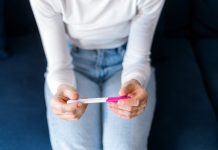Exercise has been found to lessen cardiovascular and psychological effects of adverse childhood experiences, especially in reducing female childhood trauma
Progressive exercise training programmes can alleviate some physiological and psychological effects of adverse childhood experiences (ACE) in predominantly healthy young women.
ACEs are essentially events of childhood trauma which occur before the age of 18 – including instances of abuse, neglect, or the loss of a parent.
The experience of ACEs increase the risk of a range of chronic illnesses, including heart disease and mental health problems. Around 61% of U.S. adults report experiencing at least one ACE, and about 16% report experiencing four or more.
According to the U.S. Centers for Disease Control and Prevention, these experiences of female childhood trauma can be linked to “lasting, negative effects on health, well-being, as well as life opportunities.”
Trauma can increase the risk of many chronic illnesses
Focusing on female childhood trauma mitigation, the research team from the American Physiological Society split 42 otherwise healthy young adult women into three groups, one experimental and two controls.
Comprising of 14 young women who experienced at least four ACEs, the experimental group also had one control group made up of young women who did not experience any ACEs.
The experimental group participated in a moderate-high intensity progressive exercise training programmes consisting of two days of aerobic and two days of resistance exercise per week.
The resistance training steadily increased in weight as participants reached set milestones.
Improvement was shown in two markers of cardiovascular health and two markers of psychological well-being, where participant’s systolic blood pressure – which is the upper number in a blood pressure reading – reduced, as did their levels of endothelin-1 – which is a peptide that triggers constriction of blood vessels.
Participants had improved goal-planning, inspiring hope
There was an increased connection between the physiological and psychological outcomes which the researchers say: “suggests a potential psychophysiological relationship between positive psychological traits and cardiovascular risk factors in young women with ACEs.
“Our data may point to an important cardiovascular psycho-physiological connection in young adult women who have experienced significant childhood psychosocial stress that can be improved via participation in structured, progressive exercise training programmes.”
The results of the trial also showed improved goal-planning, which is a sub-type of the psychological measure of hope. This study can be used for therapy techniques to alleviate the burden of female childhood trauma in adults.











